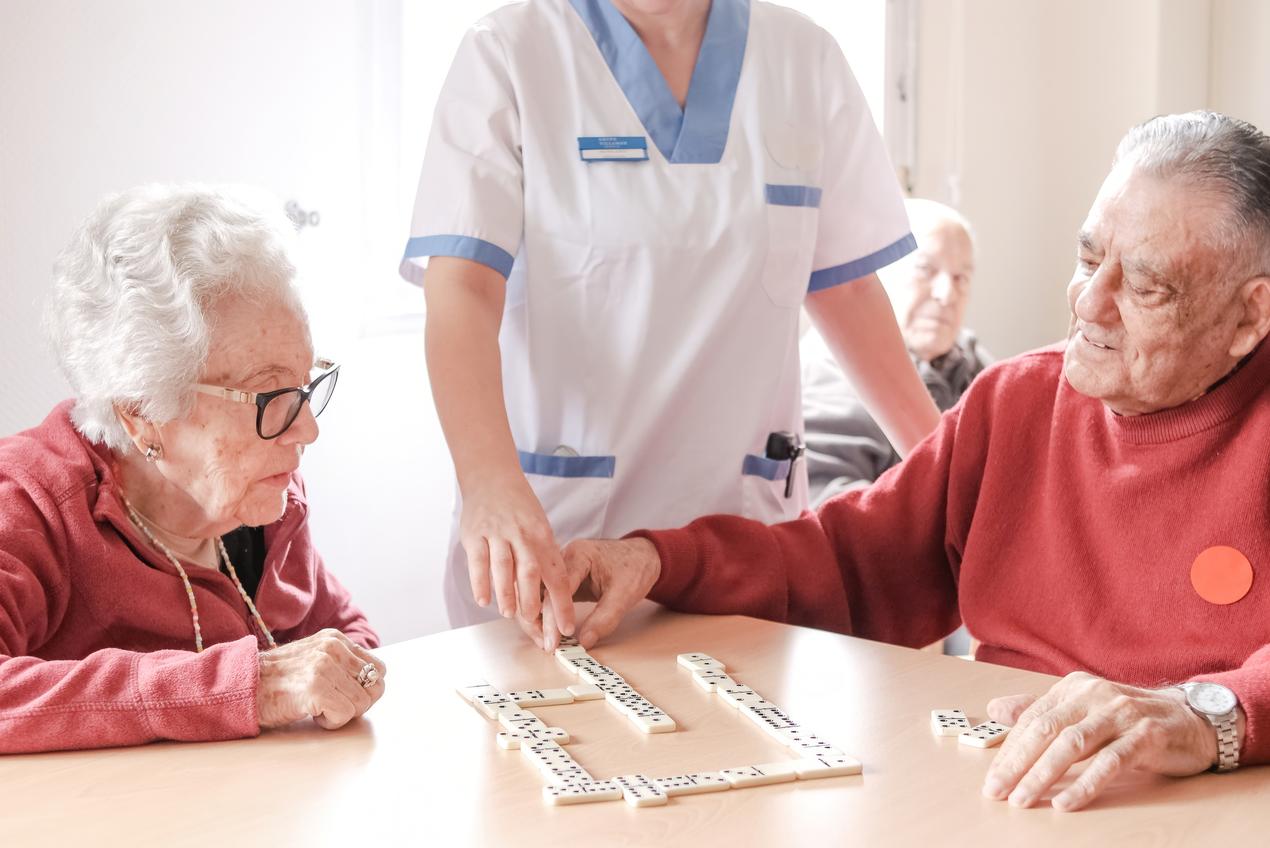Cognitive stimulation is essential for enhancing the quality of life for residents in senior living. As individuals age, it is natural to experience some decline in cognitive abilities, including memory. However, thoughtfully designed activities and games can play a crucial role in slowing this decline while adding a fun and social dimension to life in senior living.
The Importance of Memory Stimulation
Memory is one of the cognitive functions most affected by aging. Memory issues can manifest as frequent forgetfulness, difficulty recalling recent or past events, and challenges in organizing information logically. These symptoms are often associated with conditions like dementia or Alzheimer’s disease but can also result from normal aging.
Regular memory stimulation helps maintain cognitive sharpness and can prevent the worsening of these issues. Research has shown that mental activities promote brain plasticity, or the brain’s ability to reorganize and create new neural connections. Memory games are, therefore, a valuable tool to support this brain function and improve residents’ overall well-being.
Tailored Games for All Levels
It is essential to offer games suited to residents’ cognitive abilities while taking into account their personalities and preferences. Games should be stimulating enough to encourage mental activity but not so complex as to cause frustration. Here are some types of games that can help stimulate residents’ memory, regardless of their level of autonomy:
Classic Card Games
Card games like Rummy or War provide undeniable cognitive benefits. They engage short-term memory, concentration, and decision making skills. For more independent residents, these games can encourage social interaction and enhance logical reasoning abilities.
Word Puzzles and Letter Games
Crosswords, Sudoku, and other word-based games are particularly effective and stimulating memory and logical thinking. Crosswords, in particular, enhance semantic memory by encouraging participants to recall vocabulary and definitions. These games can be tailored to residents’ abilities, offering various difficulty levels.
Visual Memory Games
Visual memory games are especially suitable for residents with mild memory care. These games involve memorizing a series of images of cards and then matching them in pairs. This activity exercises visual memory and improves short-term memory retention.
Adapted Board Games
Classic board games like Monopoly, Dominoes, or Scrabble can be modified to simplify the rules and make them more accessible. These games combine mental stimulation with social interaction, which is vital for residents who may feel isolated or withdrawn. Organizing tournaments or group game sessions can also help foster social bonds, reducing the risks of loneliness or depression.
Story and Anecdote Memorization
Another engaging memory game involves storytelling. Residents listen to a simple story and are then asked questions about its details, encouraging them to use their short-term memory. Stories based on family events or residents’ past experiences can make the activity more engaging and relatable.
Integrating Memory Stimulation into Daily Life

Memory games should not be limited to specific sessions. They can be incorporated into daily activities. For instance, group activities like quizzes or board games which combine discussion and reflection can enhance both memory and emotional connection, improving overall well-being.
Memory Stimulation Through Music
Music is an excellent tool for stimulating long-term memory. Playing familiar songs or tunes for residents can trigger cherished memories and foster meaningful conversations. Residents can be invited to guess the lyrics, titles, or artists of familiar songs, creating a fun activity that combines musical memory with enjoyment.
The Key to Success: Adaptation and Variety
It is important to remember that there is no one-size-fits-all solution for stimulating residents’ memory. Each person has different needs and preferences, and games should be adapted to their cognitive levels and current mood. A mix of varied games and stimulating social activities is the best approach.
Stimulating residents’ memory through tailored games is a beneficial and enjoyable practice in senior living. Not only does it help maintain cognitive abilities, but it also provides an opportunity to strengthen social bonds, encourage participation, and create shared moments of joy. By diversifying the games offered and considering each resident’s individual needs, you can enhance their quality of life and promote their mental wellness.
At Bonjour Résidences, we are here to help you find a senior living that meets all your needs or those of a loved one, particularly for cases requiring memory care. Contact us at 1 844 918-1020 to simplify your transition and enjoy free personalized assistance.








